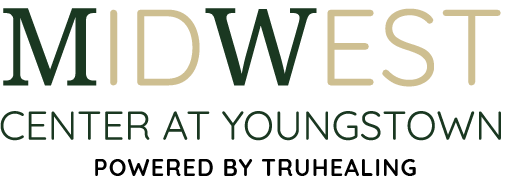For many individuals in recovery, unhealed trauma is often the single most influential factor that has led to their self-medicating with drugs and alcohol. According to current research, the overwhelming majority of individuals who combat substance use have received insufficient or no treatment for a past traumatic event. In fact, if you have suffered a traumatic incident, you are five times more likely to develop a co-occurring substance use disorder. By identifying and working to process these difficult experiences from your past, you can finally begin to restructure your life.
When seeking a trauma therapy program in Ohio, consider our qualified specialists at Midwest Center at Youngstown. Our holistic, compassionate approach to therapy creates a safe space for clients to explore incidents from their past, permitting them to make better decisions moving forward. Contact our team at 844.544.0502 to learn more about how trauma therapy might help you.
What Is Trauma?
When a person experiences a deeply disturbing or stressful event that continues to affect their psychological state after the incident has concluded, they often resort to alternate coping mechanisms to restore normal functioning.
Traumatic events include (but are not limited to):
- Sexual and/or violent assault
- Food insecurity, poverty, or homelessness
- Domestic abuse
- Chronic bullying
- Involvement in military conflicts
- Death of friends or loved ones
- Natural disasters
- Major injury or accident
- Prolonged illness
Sometimes, these incidences are relegated to an individual’s subconscious or unconscious memory, and they remain unaware that their current behaviors are linked to past traumas.
Unprocessed trauma can appear through a variety of physical and psychological symptoms and include recurring:
- Flashbacks
- Insomnia, night terrors, or nightmares
- Panic attacks
- Feelings of insurmountable anxiety or depression
- Dramatic appetite and weight changes
- Uncontrolled anger
- Bouts of weeping
- Inability to focus on work or at school
- Difficulty thriving in personal relationships
These will often appear in response to specific triggers, such as familiar sights, sounds, locations, or anything else they have learned to associate with excessive fear.
How Can a Trauma Therapy Program Aid in Recovery?
Individuals coping with unprocessed trauma are not simply able to “get over it.” These events have physically altered their brain, and it requires time and a number of complementary methods to correct those faulty pathways. If they are not taught more healthful techniques, they may resort to dulling their grief or distress with compulsive behaviors, including gambling, promiscuity, or substance use.
Unfortunately, substance use does not actually treat trauma; it merely obscures the symptoms, making it even more difficult for clients to connect their current emotions with events from their past. However, after clients have completed detox with a program that allows them to feel safe, vulnerable, and cared for, they are often more open to sharing their experiences.
Trauma therapy can take several different forms depending on the client’s specific needs, medical history, and psychological profile. Some common methods include:
- Cognitive-behavioral therapy (CBT)
- Neurofeedback therapy
- Grief counseling
- Peer-to-peer and group counseling
In these sessions, the client explores past traumas and is offered exercises to better understand how these may manifest within their current choices. Then, the client is taught more healthful coping mechanisms they can use in daily life, such as deep breathing, meditation, and cognitive restructuring through learning distress management skills.
Trauma Therapy Program at Midwest Center at Youngstown
Do not allow your past to limit your future. At Midwest Center at Youngstown, we understand the indelible link between trauma and addiction. We will offer you the time and space required to fully understand how trauma has altered your life and learn more empowering strategies. Call us today at 844.544.0502 to learn more about the services we offer to help you recover, and forge the life you want and deserve.

